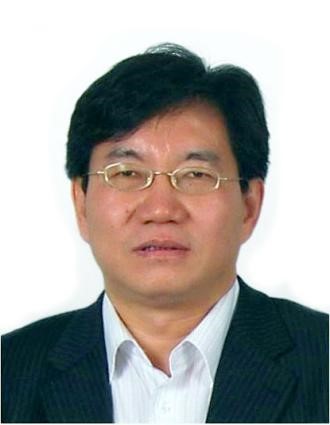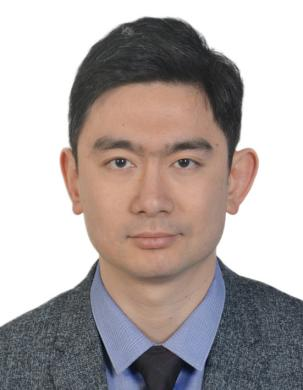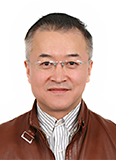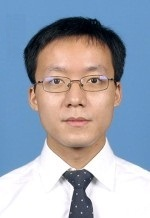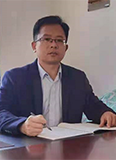
Speakers
KEYNOTE SPEAKERS
| Prof. Witold Pedrycz,IEEE Life Fellow Department of Electrical & Computer Engineering University of Alberta, Edmonton, Canada Biography: Dr. Witold Pedrycz (IEEE Life Fellow) is Professor and Canada Research Chair (CRC) in Computational Intelligence in the Department of Electrical and Computer Engineering, University of Alberta, Edmonton, Canada. He is also with the Systems Research Institute of the Polish Academy of Sciences, Warsaw, Poland. Dr. Pedrycz is a foreign member of the Polish Academy of Sciences and a Fellow of the Royal Society of Canada. He is a recipient of several awards including Norbert Wiener award from the IEEE Systems, Man, and Cybernetics Society, IEEE Canada Computer Engineering Medal, a Cajastur Prize for Soft Computing from the European Centre for Soft Computing, a Killam Prize, a Fuzzy Pioneer Award from the IEEE Computational Intelligence Society, and 2019 Meritorious Service Award from the IEEE Systems Man and Cybernetics Society.,His main research directions involve Computational Intelligence, fuzzy modeling and Granular Computing, knowledge discovery, pattern recognition, data science, knowledge-based neural networks among others. Dr. Pedrycz is involved in editorial activities. He is an Editor-in-Chief of Information Sciences, Editor-in-Chief of WIREs Data Mining and Knowledge Discovery (Wiley), and Co-editor-in-Chief of Int. J. of Granular Computing (Springer) and J. of Data Information and Management (Springer). Title: Data Privacy, Energy Awareness and Credibility: Challenges in Machine Learning Abract: Over the recent years, we have been witnessing spectacular achievements of Machine Learning with highly visible accomplishments encountered, in particular, in natural language processing and computer vision impacting numerous areas of human endeavours. Driven inherently by the technologically advanced learning and architectural developments, Machine Learning constructs are highly impactful coming with far reaching consequences; just to mention autonomous vehicles, control, health care imaging, decision-making in critical areas, among others. We advocate that the design and analysis of ML constructs have to be carried out in a holistic manner by identifying and addressing a series of central and unavoidable quests coming from industrial environments and implied by a plethora of requirements of interpretability, energy awareness (being also lucidly identified on the agenda of green AI), efficient quantification of quality of ML constructs, their brittleness and conceptual stability coming hand in hand with the varying levels of abstraction. They are highly intertwined and exhibit relationships with the technological end of ML. As such, they deserve prudent attention, in particular when a multicriterial facet of the problem is considered. The talk elaborates on the above challenges, offers definitions and identifies the linkages among them. In the pursuit of coping with such quests, we advocate that Granular Computing can play a pivotal role offering a conceptual environment and realizing algorithmic development. As a detailed study, we discuss the ideas of knowledge transfer showing how a thoughtful and prudently arranged knowledge reuse to support energy-aware ML computing. We discuss passive and active modes of knowledge transfer. In both modes, the essential role of information granularity is identified. In the passive approach, information granularity serves as a vehicle to quantify the credibility of the transferred knowledge. In the active approach, a new model is constructed in the target domain whereas the design is guided by the loss function, which involves granular regularization produced by the granular model transferred from the source domain. A generalized scenario of multi-source domains is discussed. Knowledge distillation leading to model compression is also studied in the context of transfer learning. |
| Prof. Fushuan Wen, IEEE Fellow Zhejiang University, China Biography: Professor Fushuan Wen received the BE and ME degrees from Tianjin University, Tianjin, China, in 1985 and 1988, respectively, and the PhD degree from Zhejiang University, Hangzhou, China, in 1991, all in electrical engineering. He joined the faculty of Zhejiang University in 1991, and has been a full professor and the director of the Institute of Power Economics and Information since 1997, and the director of Zhejiang University-Insigma Joint Research Center for Smart Grids since 2010. He has been undertaking various teaching, research and visiting appointments in National University of Singapore (NSTB Postdoctoral Fellow, Research Fellow), Hong Kong Polytechnic University (Research Fellow, Visiting Assistant Professor), University of Hong Kong (Research Assistant Professor), South China University of Technology (University Distinguished Professor), University of New South Wales in Australia (ARC Project Senior Fellow, Senior Visiting Fellow), Queensland University of Technology in Australia (CSIRO and ARC Project Visiting Fellow), Brunei University of Technology (Professor in Power Systems), Technical University of Denmark (Otto Monsted Guest Professor in Power Systems), Nanyang Technological University in Singapore (Visiting Fellow), Murdoch University in Australia (Adjunct Professor), Tallinn University of Technology (Professor in Energy Systems), Hangzhou Dianzi University in China (Yusheng XUE Education Foundation Distinguished Professor), Commonwealth Scientific and Industrial Research Organization (CSIRO) in Australia (Honorary Visiting Scientist), Shenzhen Institute of Artificial Intelligence and Robotics for Society (Visiting Principal Research Scientist). His research interests include: 1) power economics and electricity markets; 2) power system investment, planning and operation optimization; 3) smart grids and electric vehicles; 4) power system alarm processing, fault diagnosis and system restoration; 5) artificial intelligence applications in power and integrated energy systems. He has published 200+ SCI-indexed papers, 650+ EI-indexed papers, and 740+ Scopus-indexed papers. His publications have been cited for 16000+ times. He has completed and is undertaking more than 170 grants and projects from governmental organizations and industry. Prof Wen received many awards both at the national level and provincial level, including the most prestigious National Natural Science Award of China. He has been listed in "Most Cited Chinese Researchers" in seven consecutive years since 2015 by Elsevier, and is the author of one of the China's 100 Most Influential Domestic Academic Papers in 2016. Prof Wen is the editor-in-chief of Energy Conversion and Economics (SPERI, IET, Wiley), the deputy editor-in-chief of Journal of Automation of Electric Power Systems, a subject editor in power system economics of IET Generation, Transmission and Distribution, associate editor of Journal of Energy Engineering and Journal of Modern Power Systems and Clean Energy. He is also on the editorial boards of more than 10 journals.
|
| Prof. Zhe Dong North China University of Technology(NCUT), China Biography: Dong Zhe, Professor, PhD supervisor. He is currently the Deputy Dean of School of Electrical and Control Engineering, North China University of Technology, and the Director of Beijing Key Laboratory of Field Bus Technology and Automation. Beijing Youth Top Talent, CCF Industrial Control computer Committee Standing Committee, China Instrumentation Society of Internet of Things Working Committee deputy secretary general, Beijing Artificial Intelligence Society Council. From 2000 to 2009, he graduated from Beijing University of Aeronautics and Astronautics and Institute of Automation, Chinese Academy of Sciences with Bachelor of Engineering and Doctor of Engineering degrees. In 2014, he was a visiting scholar at University of Michigan. Since 2009, he has been teaching at Department of Automation, North China University of Technology. He has presided over 9 vertical projects such as National Natural Science Foundation and national key research and development plan, and 18 horizontal projects. He has published 34 papers, including 19 SCI and EI retrieval papers, 7 standards, 22 national invention patents and 9 software Copyrights, published 1 work and 2 textbooks, and presided over the research and development of environmental protection detection and control equipment, industrial Internet protocol conversion module and other application demonstrations in China. "Research and Development and application of New Environmental Protection Key Control Technology and High-power and High-efficiency plate ozone Generator" won 8 provincial and ministerial awards, including the second Prize of Science and Technology of Beijing in 2016. Title: Intelligent cloud control and decision based on Industrial Internet |
| Prof. Tao Zhang North China University of Technology, NCUT, China Biography: Zhang Tao, professor, doctoral tutor, "Distinguished Expert" of overseas high-level talents introduced by the Central Organization Department, Chief Scientist of Aerospace Changfeng of Aerospace Science and Industry Group, Vice President of Beijing European and American Alumni Association, President of Electronic Branch of Beijing Expert Association, Distinguished Expert of Beijing Overseas High-level Talents "Haiju Project", "High-end Leading Talent" of National Zhongguancun Science and Technology Demonstration and Entrepreneurship Base, Beijing International "High-end Business Talent" Award, and Chief Technical Expert of National Golden Shield Project. Expert leader of key R&D projects of informatization construction of National Development and Reform Commission, expert of national informatization projects, member of National Science and Technology Award Expert Committee, special expert of key R&D of Ministry of Science and Technology, and expert of National Natural Science Foundation of China. He used to be the chief architect of the German Volkswagen Computer Expert System, the senior consultant of the banking business of IBM Corporation of America, and the vice president of the technology and operation department of Bank of America. Engaged in the research and application of big data core algorithms, data integration and data governance, the design and construction of powerful intelligent engine middle and back-office architecture, providing 360-dimensional support for applications in various fields of foreground application scenarios, and leading the design, development and implementation of 28 intelligent application systems: 1. Smart financial risk prevention and control, 2. Smart city, 3. Safe city, 4. Intelligent transportation, 5. Smart medical care, 6. Wisdom. |
| Prof. Yang Han, IEEE Senior Member School of Mechanical and Electrical Engineering, UESTC, China Biography: Yang Han (S’08-M’10-SM’17) received the Ph.D. degree in Electrical Engineering from Shanghai Jiaotong University (SJTU), Shanghai, China, in 2010. In 2010, he joined the University of Electronic Science and Technology of China (UESTC), Chengdu, China, where he has been an Associate Professor in 2013, and Full professor in 2021. From March 2014 to March 2015, he was a Visiting Scholar with the Department of Energy Technology, Aalborg University, Aalborg, Denmark. He is currently with the School of Mechanical and Electrical Engineering, UESTC. His research interests include the ac/dc microgrids, active distribution networks, power quality, grid-connected converters for renewable energy systems, active power filters, multilevel converters, and static synchronous compensators (STATCOMs). Dr. Han has received several national and provincial projects, and more than 30 industrial projects in the area of power electronics, smart grid, microgrid, and power quality analysis and compensation. He holds more than 40 issued and pending patents. Dr. Han was listed as “World’s Top 2% Scientist 2022” by Stanford University in 2022, and the recipient of the Young Scientist Award in CPESE 2021, the Provincial Science and Technology Award in 2020 and 2022, Science and Technology Award from Sichuan Electric Power Company in 2019, Academic Talent Award by UESTC, in 2017, Baekhyun Award by the Korean Institute of Power Electronics, in 2016. He has published a book “Modeling and Control of Power Electronic Converters for Microgrid Applications”, ISBN: 978-3-030-74512-7, Springer. He served as an Associate Editor of Journal of Power Electronics and IEEE ACCESS (2019-2020). Personal Website: Click here Title: Recent Progress on Modeling and Control of Power Electronic Converters for Microgrid Applications Abract: This presentation introduces the fundamental ideas of power electronic converter modeling and control, digital simulation, and experimental studies in the renewable energy systems and AC/DC microgrid. Recent advanced control methods for voltage source inverters (VSIs) and the hierarchical controlled islanded microgrid would be presented, including the mathematical modeling, controller synthesis, parameter selection and multi-time scale stability analysis, as well as the consensus-based control strategies for the microgrid and microgrid clusters. This topic would be an invaluable technical reference for practicing engineers and researchers working in the areas of renewable energy, power electronics, energy internet, and smart grid. This topic has been published in the recent book “Modeling and Control of Power Electronic Converters for Microgrid Applications” by Springer: https://www.springer.com/gp/book/9783030745127. |
| Prof. Huajun Dong Dalian Jiaotong University, China Biography: Huajun Dong, is a professor and master tutor of Dalian Jiaotong University. He is currently the Dean of School of Computer and Communication Engineering, Dalian Jiaotong University. Awards and Individual Honors: 1.Excellent Teacher, Dalian Jiaotong University, 2017. 2. "Thousand Levels" of Millions of Talents Project, Liaoning Province, 2015. 3. Third Prize of Natural Science Paper, Liaoning Provincial Natural Science Academic Achievement Award, 2014. 4. Outstanding Teacher, Dalian Jiaotong University, 2013. 5. Outstanding Postdoctoral Researcher, Henan Province, 2013. Research areas: 1. Basic theory of vacuum switching arc; 2. Machine vision application technology. |

